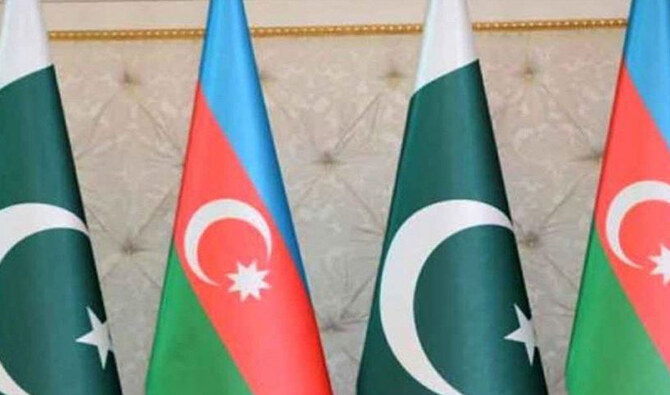ISLAMABAD: Azerbaijan and Pakistan inaugurated a joint chamber of commerce and industry on Wednesday, Pakistan’s privatization ministry said, as part of Islamabad’s efforts to bring investment matters in priority sectors under a single platform.
Azerbaijan officials have made several visits to Pakistan in recent months as Islamabad seeks to strengthen trade and investment ties with former Soviet republics and Central Asian states. Last July, President Ilham Aliyev visited Pakistan and announced that the two countries were working to enhance bilateral trade to $2 billion.
The development also takes place amid Pakistan’s aggressive efforts to escape a prolonged economic crisis by attracting investment in energy, mining, agriculture, infrastructure, livestock and other key sectors of its economy. Pakistan has signed agreements worth billions of dollars with Saudi Arabia, the UAE and other countries since 2023 after its macroeconomic crisis brought it to the brink of a sovereign default.
“Pakistan has achieved another significant milestone in boosting investment and business activities with the inauguration of the Azerbaijan-Pakistan Chamber of Commerce and Industry,” the privatization ministry said in a press release. It added that Pakistan’s Privatization Minister Abdul Aleem Khan and Azerbaijan’s Ambassador Khazar Farhadov were chief guests at the event in Islamabad.
Khan said the joint chamber of commerce has enabled both countries to address investment matters under a single platform, adding that Pakistan would collaborate with Azerbaijan’s business community to boost exports of local products.
Ambassador Farhadov said both countries were taking steps to enhance bilateral cooperation, the ministry said. He expressed confidence in the joint chamber of commerce as a platform that would aid in increasing the existing $2 billion business volume between both countries.
Islamabad and Baku’s cooperation spans several sectors. Pakistan’s Defense Minister Khawaja Asif said in January that both countries were in the process of finalizing a memorandum of agreement to enhance security ties through cooperation in arms trade, defense infrastructure and intelligence sharing.
In December, Pakistan waived customs and regulatory duties on imports from Azerbaijan under the Pakistan-Azerbaijan Preferential Trade Agreement. The agreement aims to enhance economic cooperation by reducing tariffs on goods such as Pakistan’s sports equipment, leather and pharmaceuticals, and Azerbaijan’s oil and gas products.












